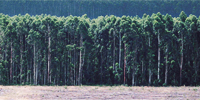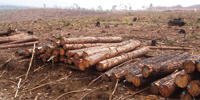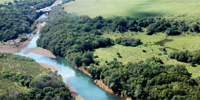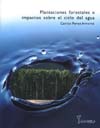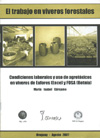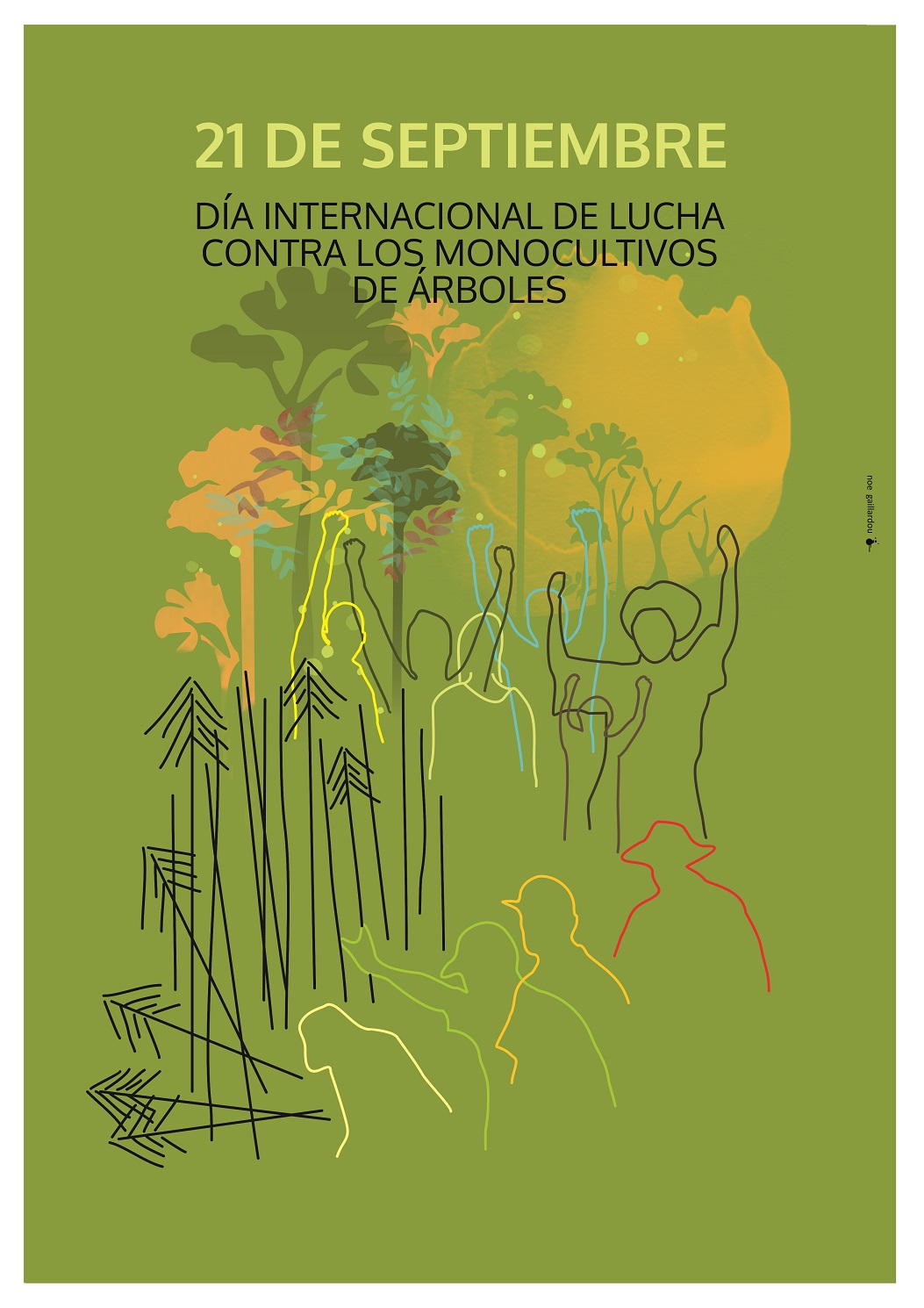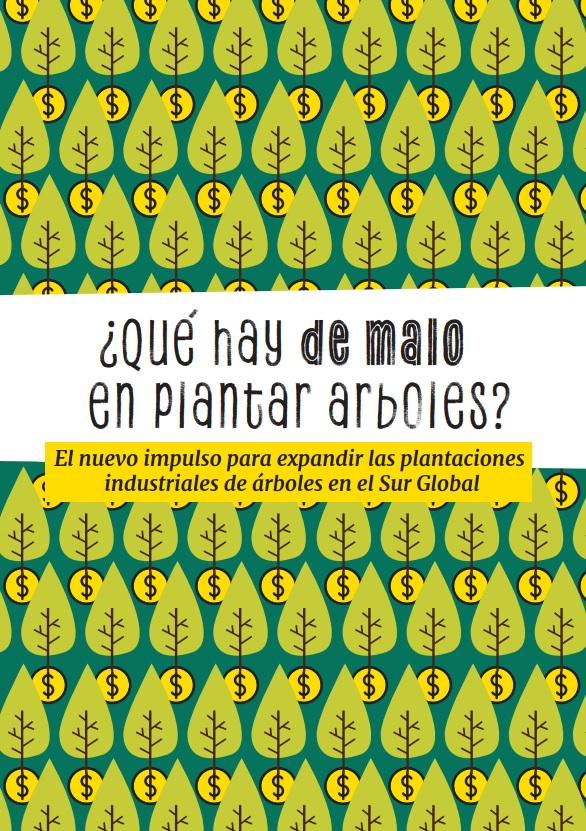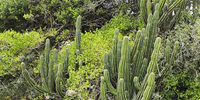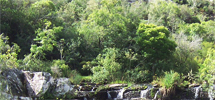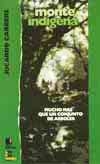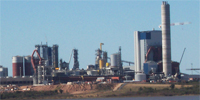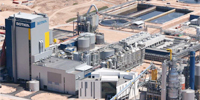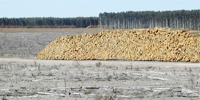It was recently reported that the pulp and paper consortium Montes del Plata, a joint venture between Swedish-Finnish forestry giant Stora Enso and the Chilean corporation Arauco, has sold 45,000 hectares of land in the departments of Tacuarembó and Rivera, most of it covered by tree plantations, to the U.S. investment management firm GMO. (1)
A global firm headquartered in Boston, GMO manages USD 110 billion in assets, for clients that include endowments, pension funds, public funds, foundations and cultural institutions, as well as offering a range of investment options such as debt and stock investment funds. Its subsidiary GMO Renewable Resources focuses on the management of forestry sector investments. In Uruguay, GMO Renewable Resources already controlled 37,000 hectares of industrial plantations in the departments of Rivera, Tacuarembó and Cerro Largo (according to a 2009 report by the specialized consulting firm Rosario Pou & Asociados).
The reason behind the recent sale of the Montes del Plata plantations to GMO is probably the fact that they are located relatively far away from the pulp mill that Montes del Plata is building in Conchillas, in the department of Colonia. According to company sources, the cost of transportation make it unviable to continue producing the raw material such a long distance from the mill.
There are a number of local pension funds that have invested in industrial tree plantations in Uruguay in the past, including the Caja de Jubilaciones y Pensiones Bancarias (which represents bank workers), la Caja de Profesionales Universitarios (university-trained professionals) and Caja de Jubilaciones y Pensiones Notariales (notaries). But recently they have been joined by foreign pension funds making medium- to long-term investments in the sector.
One of them is the Dallas Police & Fire Pension Fund (based in the U.S. city of Dallas, Texas), which has invested in Uruguayan tree plantations through the Regions Timberland Group (RTG). Founded in the U.S. city of Atlanta, Georgia in 1981, RTG operates as a business unit of the Regions Bank, based in the same city, and is a pioneer in so-called timberland investing for institutional investors. The group started its activities in Uruguay in 2005, with the creation of the Southern Cone Timber Holdings, LLC investment fund and the founding of Taurion S.A. Timberlands. It subsequently added the management of tree plantations under the ownership of the investment funds Criollo Madera (Monte Fresnos S.A) and Bosques del Sur (Ponte Tresa S.A). RTG is also the registered owner in Uruguay of the companies Monte Fresnos S.A and Ponte Tresa S.A. and has established the investment funds Criollo Madera and Bosques del Sur. The timber produced by these companies is intended mainly for the production of pulp, saw timber, energy and other purposes, both for export and the domestic market. (2)
All Pensions Group (APG), one of the world’s biggest pension fund administrators, has a timberland investment fund and is also active in Uruguay.
According to a study conducted by REDES Amigos de la Tierra (3), Global Forest Partners (GFP), a U.S.-based investment group that administers pension funds around the world, owns four forestry companies in Uruguay: Forestal El Arriero (which controls 26,000 hectares), Forestal Oro Verde (50,000 hectares), Forestal Tekoayhu (50,000 hectares) and Forestal Tierra Verde (14,000 hectares). In all, this investment group’s land holdings in Uruguay total 140,595 hectares.
Other actors who have come to play a significant role in Uruguay as investors in tree plantations are forestry investment funds. According to the abovementioned report, one of these is Forestal Atlántico Sur (FAS), which emerged from a joint venture partnership between Forestal del Sur (Chile) and Peter Lyford-Pyke (Uruguay). It began to operate in Uruguay in 2006, specializing in commercial activities aimed at the export of timber for pulp production. In late 2012, FAS bought 30,000 hectares of land in southeast Uruguay and the Spanish company ENCE’s installations in Uruguay.
According to investors in the forestry sector, Uruguay is attractive despite the fact that sometimes “the legislation is changed” with regard to taxation, an allusion to the approval of the Impuesto a la Concentración de Inmuebles Rurales (Rural Property Concentration Tax), which was subsequently revoked and replaced with the Impuesto al Patrimonio (Net Worth or Equity Tax).
Creating a favourable climate for foreign investmentThe treatment of foreign investment on an equal footing with national investment has not only attracted the installation of the world’s leading forestry and tree plantation companies but also a number of investment funds such as GMO, RMK, GFP, FAS and others.
There are also a number of special tax benefits that serve to promote foreign investment in general and in the forestry sector in particular, including the following:
* Between 20% and 100% of the amount invested can be discounted from the Income Tax on Economic Activity (IRAE), depending on the classification of the project.
* This income tax is set at a flat rate of 25%
* Moveable goods (equipment, machinery, etc.) that form part of the company’s fixed assets or are used in building construction are exempted from the Net Worth or Equity Tax (IP).
* Purchases of materials and services for construction are exempted from Value-Added Tax (IVA).
* Fixed assets required for the project are exempted from import duties as long as they are deemed non-competitive with national industry.
Source: “Uruguay. Información sobre sector forestal e inversiones”, March 2013, Rosario Pou & Asociados, http://www.uruguayforestal.com/informes/uruguay.pdf
This last point, however, totally disregards the crucial fact that industrial tree plantations are destroying Uruguay’s primary natural ecosystem – grasslands – which traditionally served as the basis for its main economic and productive activities. Moreover, the establishment of monoculture plantations of fast-growing trees in the recharge areas of aquifers and the headwaters of rivers is posing a serious threat to the country’s water sources, as in the case, for example, of the Santa Lucía River, which supplies drinking water to Montevideo and its metropolitan area.In general terms, Uruguay is considered a good place to invest because it is politically stable, with a high literacy and low crime rate. In terms of industrial tree plantations, another perceived advantage is that these are primarily established on grasslands, and therefore do not interfere with natural forests. (4)
But what do these types of investments imply? In the first place, the arrival of new actors to swell the ranks not only of the pulp and paper industry, but also other business sectors associated with industrial tree plantations, pouring more and more money into the expansion of these large-scale plantations, at the cost of the lives and future of communities and ecosystems. At the same time, these new investment funds, comprised of the money of anonymous investors who often have no idea how their savings and contributions are being used – a fact that additionally distorts the social character of workers’ pension funds, for example – have now joined with the big financial actors who are driving the commodification of nature, turning it into a market that is increasingly speculative, concentrated and a source of injustice and inequality. The local communities struggling to preserve their territories, livelihoods, identity and future must now confront an ungraspable, faceless adversary. This is a new challenge that must be tackled in the fight against the relentless expansion of large-scale industrial tree plantations, which already cover more than a million hectares of Uruguayan territory.
By Elizabeth Díaz, Grupo Guayubira, info@guayubira.org.uy, http://www.guayubira.org.uy/
(1) “Fondo de EE.UU. compró campos a Montes del Plata por unos US$ 140:”, Fabián Tiscornia, El País, http://www.elpais.com.uy/economia/noticias/fondo-ee-uu-compro-campos-montes-plata.html
(2) http://www.regionstimberland.com/pdfs/RMK_Management_Plan-English.pdf
(3) “Agentes Empresariales del Agronegocio, Uruguay Informe 2012”, Redes Amigos de la Tierra y Uruguay Sustentable, http://www.redes.org.uy/wp-content/uploads/2013/03/Agentes-Agronegocio-Baja.pdf
(4) “MK Timberland Sets Sights On Brazil”, Institutional Investors,http://www.institutionalinvestor.com/Popups/PrintArticle.aspx?ArticleID=1048017

